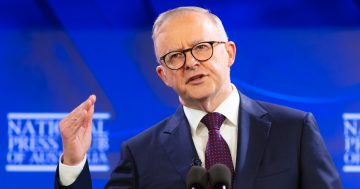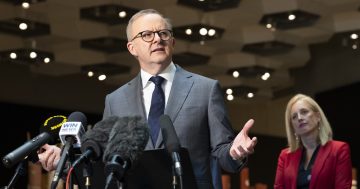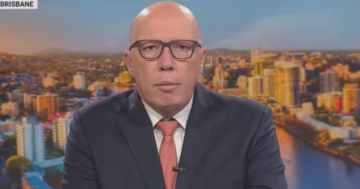
Three years does not seem long enough for effective governnment. Photo: AEC.
Prime Minister Anthony Albanese will probably call the election today (28 March), meaning his government will run a full term.
He did want to go a little earlier, but a storm called Alfred intervened.
For some, an election couldn’t come soon enough, but I suspect many will be thinking the three-year election cycle is approaching redundancy.
I’m loath to interfere with a system that has served Australia well, but three years when the nation faces serious challenges that require long-term thinking and solutions doesn’t seem long enough anymore.
The states and territories switched to four-year terms years ago and the sky hasn’t fallen in.
It seems we have been in election mode from the end of the last one – the Voice referendum didn’t help, given it turned into a trial run for Peter Dutton’s divisive strategy to tap the grievance vote in uncertain times.
But governments generally now seem to take a year to bed down, a middle year to implement programs and in the last year, prepare for the polls.
If the Albanese Government is anything to go by, it’s a recipe for a risk-averse, focus-group-driven government with the tough decisions kicked down the road.
Budgets continue to ignore boring things like structural deficits, narrowing tax bases or spending blowouts, depending on your world views.
Another year might provide the space to bring a bit more substantive policy work and long-term decision-making to the Parliament, although that’s not a given.
The UK has five-year terms, the French President has a seven-year term, the French National Assembly five and the US President four, although the US House of Representatives has its two yearly terms.
Seven is way too long, five is as well, and two is not nearly enough. Four seems about right, and make them fixed.
Government these days appears to be a carefully calibrated process with an eye on the headlines, competing interest groups and how long away the election might be.
That’s politics, some might say.
But if that’s all it is, then our politicians are not doing us any favours.
Because addressing global warming, decarbonising the economy while keeping the lights on; tax reform, ensuring enough housing, schools and hospitals; securing our food sources; stopping environmental degradation; and defending the nation (add your own big issues here) can’t be dealt with properly by anxious politicians who are more worried about keeping their seats than bequeathing a livable legacy for coming generations.
The recent antics of our leaders have not been edifying. Albanese’s declaration of Labor this budget week as the low-tax party signifies a race to the bottom when it comes to credible economic policy.
Dutton continues to ignore the future by calculatingly courting SUV-driving families in mortgage belts and persisting with a fantastical nuclear policy that even Liberal members are disowning.
The losers are the disenfranchised working poor, the homeless and others that don’t fit into either parties’ political calculus and Australia’s increasingly tattered idea of the fair go.
Whatever your political preferences, we need the unvarnished truth from politicians and ideas across the spectrum that we can consider rather than a parade of bribes.
Australia will vote in May, and by the middle of 2028, the talk, usually fanned by journalists with their own agenda, no doubt will be about an early election.
I admit it’s a risk to give them another year, but it’s one worth taking if it could in any way help focus attention on some solutions to problems that are not going to go away but get worse without any action.



















